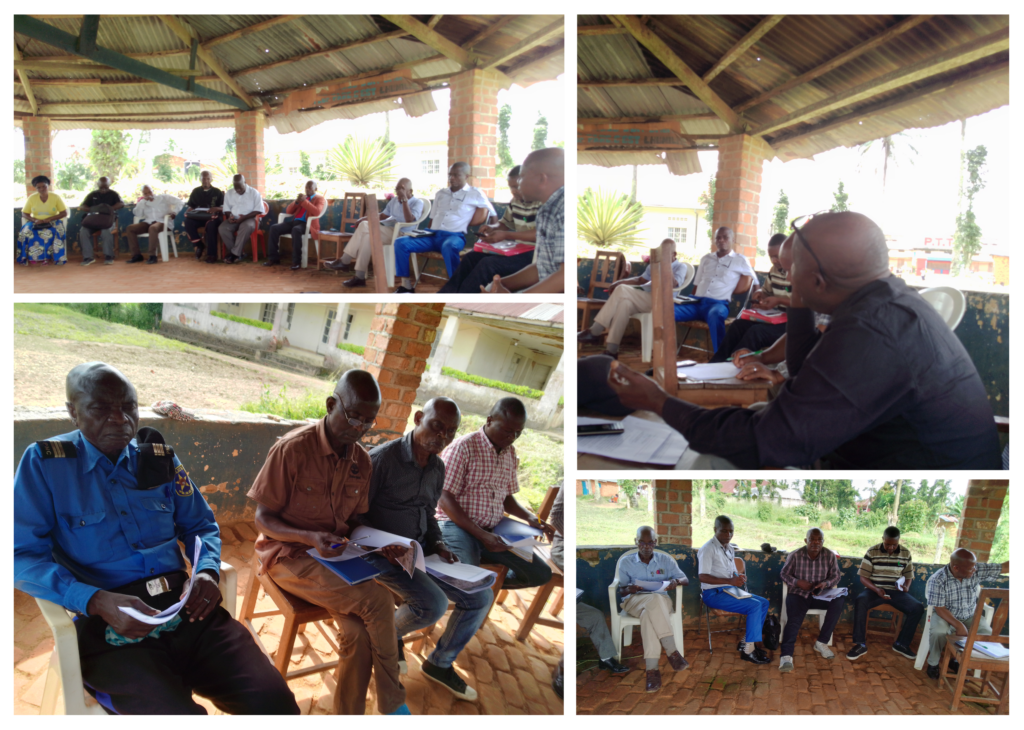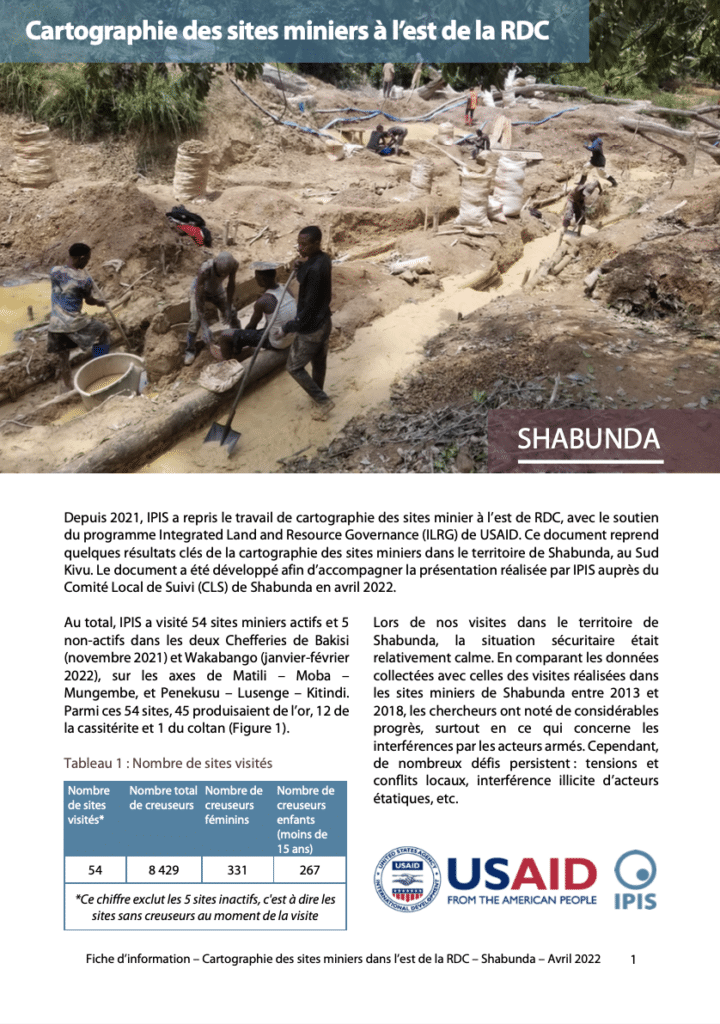Since 2021, IPIS undertakes another large-scale mapping effort of artisanal and small-scale mining (ASM) sites in the eastern Democratic Republic of Congo (DRC), – in partnership with USAID and the Congolese Ministry of Mines (through its technical service SAEMAPE).
The project aims to provide observers, supply chain actors and policymakers with reliable data to understand artisanal mineral supply chains and conflict financing in 7 provinces of eastern DRC (Ituri, Tshopo, Haut-Uele, North and South Kivu, Maniema, and Tanganyika). IPIS increasingly tries to share the results of the surveys directly with Congolese actors along the upstream part of the supply chain, to make the results more accessible and available for them.
As part of this objective, IPIS will share the results of its research with several mining activity monitoring committees – e.g. Provincial Monitoring Committees (CPS), Territorial Monitoring Committees (CTS) or Local Monitoring Committees (CLS). These committees are a legal framework within which sectoral authorities, civil society and economic operators regularly discuss the compliance of mining activities and propose solutions for good governance of the mining sector.
A first of these feedback moments was organized on the 6th of April 2022 in Shabunda territory, South Kivu province. IPIS focal point Zacharie Bulakali Ntakobajira and SAEMAPE agent Mike Mudukwe shared the results of the surveys carried out between October 2021 and March 2022 with the Shabunda CTS.

CTS participants were very interested to hear about the results and confirmed the quality of the data. The presentation led to some interesting discussions among the participants on transparency and reliability of production statistics, questions on the wide range of (legal and illegal) taxes in the ASM sector, etc.
Furthermore, the CTS discussed a range of other challenges, such as management issues both within the CTS and at a number of mining sites, intercommunity tensions or disputes between the cooperatives and mining authorities.

This project is implemented with the support of USAID and in the framework of the Integrated Land and Resource Governance (ILRG) program.


